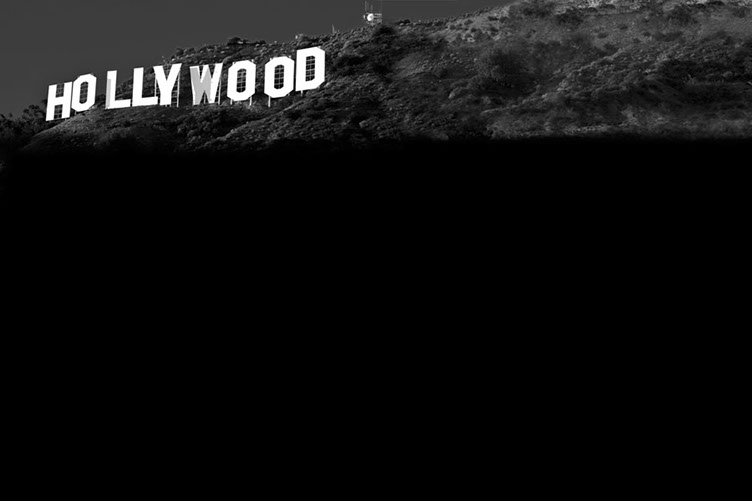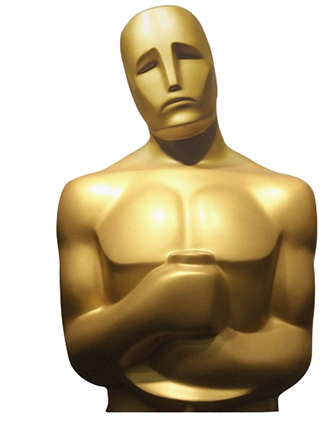




They say it’s the squeaky wheel that gets the grease. That is precisely what happened when the African American community cried foul after this year’s Oscar nominations were announced and not one person of color was nominated in the acting categories for the second straight year. Their outcry was loud and clear, led by some of Hollywood’s most notable African American talent: Jada Pinkett Smith, Will Smith, Spike Lee, Angela Basset, Ava DuVernay (famously passed over for a Best Director nomination for last year’s Selma), Don Cheadle, Snoop Dogg, Lupita Nyong’o, David Oyelowo, Cuba Gooding Jr, producer Will Packer (Straight Outta Compton) among others. Although Latinos were also shut out of any actor nominations, not one high profile Latino actor spoke up.
When Chris Rock took to the stage at this year’s 88th Academy Awards on February 28th, he wasted no time in wrestling the big elephant in the room, “I’m here at the Academy Awards, otherwise known as the White People’s Choice Awards.”
The mostly Anglo audience tittered awkwardly as the first stone was thrown by Rock. He spent 12 minutes of his 14 minute monologue addressing the lack of African Americans on film and at the Oscars. “Is Hollywood racist?” Rock asked rhetorically. “You’re damn right Hollywood is racist. Hollywood is ‘sorority racist’. It’s like, ‘We like you Rhonda, but you’re not a Kappa.’” The audience did their best acting job as they laughed along.
But like movies before Technicolor, it was all Black and White. I kept hoping that in each subsequent segment they would address diversity that is inclusive of Latinos, Native Americans, Asians, Muslims---but that moment never came.
Latinos on social media immediately began tweeting their disappointment and frustrations. There were several opportunities within the show to include other ethnic groups. The Girl Scout Cookies skit was a missed opportunity to bring in a girl scout from every ethnic group, but it seemed clear that Rock and Oscar producers David Hill and Reginald Hudlin (who is African American) were only focused on the African American community. They did include three Asian kids with briefcases, who Rock joked were from the PricewaterhouseCoopers accounting firm (and for which he got flack for the obvious stereotype).
I guess Latinos expected more from Chris Rock based on an essay he wrote in 2014 for The Hollywood Reporter where he talked about Latinos being the most overlooked minority in Hollywood: “But forget whether Hollywood is black enough. A better question is: Is Hollywood Mexican enough? You’re in L.A, you’ve got to try not to hire Mexicans…You’re telling me no Mexicans are qualified to do anything at a studio? Really? Nothing but mop up? What are the odds that that’s true? The odds are, because people are people, that there’s probably a Mexican David Geffen mopping up for somebody’s company right now. The odds are that there’s probably a Mexican who’s that smart who’s never going to be given a shot.”
So Latinos held out hope during the broadcast, and when Rock didn’t deliver we all felt disappointed and sad. But then we asked ouselves: Why is it that we as Latinos are always waiting for someone else to stand up and fight for us instead of doing it ourselves?
Why hadn’t a Salma Hayek, Antonio Banderas, Javier Bardem or a Benicio del Toro spoken up about the lack of Latinos in the acting categories? Maybe if they had, Latinos would have made it into the Oscar telecast conversation about diversity.
While Latinos bickered on social media about whether we were even worthy to be nominated and that we just had to “be better” and stop complaining, it was the African American community that spoke up and made an impression on the producers, enough to make it all about them, at the expense of forgetting every other single ethnic group.
But there was an ad-hoc group that decided to make a statement. It was organized by David Damien Figueroa, a community activist whose roster of friends within Latino Hollywood were ready to do something. The group consisted of journalists, Hollywood activists, and actresses Eva Longoria and Alma Martinez. The group came together in a matter of five days to launch and organize the #BrownRibbonCampaign. Alex Nogales, President and CEO of the National Hispanic Media Coalition, also adopted the #BrownRibbonCampaign. At his 19th Annual Impact Awards on February 26, just two days before the Oscars, he asked everyone to wear the Brown Ribbon proudly and protest the lack of inclusion of Latinos in Hollywood.
“We wanted Latinos and other people of color to be a part of the conversation. A quick email was sent and within an hour the #brownribboncampaign/ #hollywoodbrownout was off and running,” said Figueroa. “We knew we needed to do something. We enlisted Eva Longoria and reached millions of people through social media, radio, print media, and blogs in about two and a half days.”
The campaign quickly traveled the social media avenues and found it way to over one million persons on Facebook, Twitter and Instagram. It was a much smaller squeak than that of the African American Community and probably too late and too little for it to have had any effect on the Oscar Telecast although there were Brown Ribbon wearing persons at the Academy Awards. At least the Latino voice was heard.
But, you ask, why are we complaining when there were several Latinos nominated for an Oscar? Yes, that is true, and five of them actually won, making history in the process. Mexican-born Emmanuel Lubeski won for Best Cinematographer for The Revenant, making him the only one in history to win three consecutive Oscars (the others were for Birdman in 2014 and in 2013 for Alfonso Cuaron’s Gravity. Mexican-born director Alejandro Inarritu took home his second Oscar in a row, (Birdman last year and The Revenant this year). Jonas Rivera won an Oscar as one of the producers of Inside Out for Best Animated Feature Film; and two Chileans, Pato Escala Pierart and Gabriel Osorio Vargas, won an Oscar for Best Animated Short, Bear Story. However, not one of these projects featured on-camera Latino talent living in the U.S., leaving out the U.S. Latino. We were not represented on-camera.
Why is that important? Because U.S. Latinos are the ethnic group that buy the most movie tickets, a whopping 25% of all movie tickets.
So the lack of Latino presence in Hollywood studio films tell us that Latinos are good enough to spend money watching the films they put out, but not good enough to have a movie made about them. And when they do make a movie about real-life Latinos, they give the roles to Anglos. Argo is a fine example. The role of CIA operative Tony Mendez, who devised a plan to rescue Americans and British dip from the Canadian consulate in Iran was played by Ben Affleck. That is a stolen Latino Hero. What he did was deprive Latinos of a hero they could look up to.
Why is this important? Because the only movies Hollywood is willing to cast Latinos in are about the “drug dealers,” the “illegals.” Even then some of those roles go to Anglos. In January, Legendary announced that they had cast Charlie Hunnam to play Edgar Valdez, a high school football player from Texas who would become the only U.S. citizen to rise to the level of cartel leader in Mexico. American Sniper scribe Jason Hall was selected to write the script as a potential star vehicle for Hunnam.
News of the casting promoted tweets like:
Gladys @UsagiMylene
Hollywood: Quick to find Latinos to play drug dealers as background characters but will cast a white man for the lead / to play El Barbie.
When it comes to a high budget film, casting a Latino becomes low priority to Hollywood. Either way, it’s a double edged sword. A starring role focused on a real life character could just have the stuff for an Oscar-winning role. Instead, the low budget films like Universal’s Low Riders, which was filmed last year, are your “assembly line, crank them out” commercial-type film where the budget is sometimes as low as $5 million and the storyline is regurgitated from the film Boulevard Nights distributed by Warner Bros. in 1986. According to Hollywood, Latinos are only good enough for the fast and easy stereotypical films. This film in particular will surely bomb. Latinos are tired of supporting exploitative films like this. All Latinos just need to say “No I will not spend my money on junk films like these.”
When we support these films, it is important that we realize that the image of Latinos is a negative image perpetrated by Hollywood. As they are shown internationally, it informs other cultures of who Latinos are---at least how Hollywood perceives us. Case in point, the recent Hollywood film and TV offerings: Immigrant drug dealers (Sicario) and Netflick’s Narcos; Lifetime’s Devious Maids; and USA Networks’ Queen of the South. What other countries see has a direct consequence on how Latinos are treated abroad.
But it’s time we stopped playing the blame game and start being pro-active. It is time we stop complaining and get busy empowering ourselves. Let us take a page from what Jada Pinkett Smith who said at the onset of the whole #OscarSoWhite controversy: “I can’t help but ask the question. Is it time for people of color to recognize how much power and influence we have amassed, that we no longer need to ask to be invited anywhere…we can no longer beg for the love, acknowledgement or respect of any group. Maybe it’s time we recognize that if we love and respect and acknowledge ourselves in a way we are asking others to do that that is the place of true power.
It is time to act and not “beg.” We have the consumer power, we have the talent, we do not need to keep asking for permission. We need to empower ourselves and if mainstream Hollywood does not want to fund our films, cast our talent, and produce up-lifting stories of the many contributions by Latinos, it’s time we do it ourselves.
However, it seems some good things have come of the @OscarSoWhite movement. It showed Latinos that we can no longer afford to wait on the sidelines, hoping someone will fight our cause. We need to be vocal. If you don’t speak up how do you expect to be noticed?
And yes, Hollywood has announced initiatives to be more inclusive. The Board of Directors of the Academy of Motion Pictures Arts and Sciences has vowed to make “substantive changes designed to make the Academy’s membership, it’s governing bodies, and its voting members significantly more diverse.” A goal that they hope to reach by 2020.
JJ Abrams, one of Hollywood biggest producers, has publicly spoken up about addressing the #OscarSoWhite controversy and has announced that his production company, Bad Robot, will commit to implementing a new policy of making every effort to ensure people of color and women always make the final shortlists for openings in his films produced by his company. Already, JJ Abrams has practiced what he now preaches. He was responsible to casting Oscar Isaac in last year’s Star Wars: The Force Awakens, as Poe Dameron. Rumor has it Isaac is back on Star Wars VIII.
However, it is not a time to celebrate what some in the industry are saying they will do. It is important that the Latino community unite and work together to make the movies we so need to make that show our best side. It’s time to be the squeakiest wheel and fend for ourselves. No more begging.
So, yes to hashtags #OscarSoWhite and #HollywoodSoRacist. However, the power lies in creating our own paths, our own projects, our own reality. Let’s use that power.
By Bel Hernandez